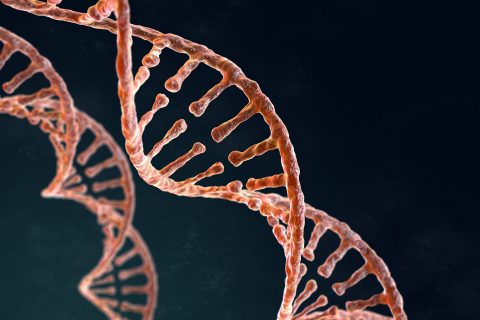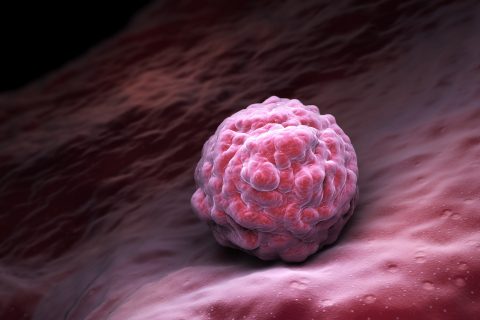Publications
Highlighted Publications:
January 2021
One-carbon metabolism genes are linked to several cancers, but the association with prostate cancer (PCa) is less clear. Studies examining the relationship have not accounted for obesity, a risk factor for advanced PCa and altered methylation patterns. We hypothesized that obesity could moderate the association between one-carbon metabolism genes and PCa outcomes. We observed associations of one-carbon metabolism genes with different associations by race. We also observed interactions with obesity related to PCa outcomes in Black men only. Therefore, the involvement of one-carbon metabolism on PCa was dependent upon obesity status for Black men. These novel results could help identify patients that might benefit from effective weight management targeting one-carbon metabolism effects.
May 2020
Androgens are essential for the growth of most prostate cancers (PCa). As a result, androgen ablation is the mainstay of the treatment of PCa. Proteins of the polycomb and trithorax family are master epigenetic regulators of cell type specific gene expression including androgen receptor. Differential methylation profiles of polycomb and trithorax genes may contribute to the dynamics of prostate carcinogenesis.
November 2019
We hypothesized that ancestry-mediated methylated DNA changes may drive racial and ethnic disparity in prostate cancer (PCa). To test this hypothesis, we analyzed genetic ancestry and association with DNA methylation changes in PCa disparity. Genetic ancestry influences DNA methylation and this modifying factor must be considered in epigenetic association studies in populations of admixed patients.
September 2018
The objective of this work was to investigate the clinical significance of promoter gene DNA methylation changes in whole blood from African American (AA) men with prostate cancer (PCa). We used high throughput pyrosequencing analysis to quantify percentage DNA methylation levels in a panel of 8 genes (RARβ2, TIMP3, SPARC, CDH13, HIN1, LINE1, CYB5R2 and DRD2) in blood DNA obtained from PCa and non-cancerous controls cases. Correlations of methylation status and various clinicopathological features were evaluated. Our data suggests that promoter methylation occurred more frequently in the blood of AA PCa and is associated with various clinicopathological features in AA men with PCa.
October 2016
Sex steroid hormones have been reported to induce inflammation causing dysregulation of cytokines in prostate cancer cells. However, the underlying epigenetic mechanism has not well been studied. The objective of this study was to evaluate the effect of sex steroid hormones on epigenetic DNA methylation changes in prostate cancer cells using a signature PCR methylation array panel that correspond to 96 genes with biological function in the human inflammatory and autoimmune signals in prostate cancer. Our studies demonstrate that sex steroid hormones can induce aberrant gene expression via differential methylation changes in prostate carcinogenesis.
May 2012
Aberrant DNA methylation is critical for development and progression of breast cancer. We investigated the association of CpG island methylation in candidate genes and clinicopathological features in 65 African American (AA) and European-American (EA) breast cancer patients. Quantitative methylation analysis was carried out on bisulfite modified genomic DNA and sequencing (pyrosequencing) for promoter CpG islands of p16, ESR1, RASSF1A, RARβ2, CDH13, HIN1, SFRP1 genes and the LINE1 repetitive element using matched paired non-cancerous and breast tumor specimen (32 AA and 33 EA women). the DNA methylation status of breast tumors was found to be significantly associated with clinicopathological features and race/ethnicity of the patients.
October 2011
Glutathione S-transferases (GSTs) metabolize drugs and xenobiotics. Yet despite high protein sequence homology, expression of π-class GSTs, the most abundant of the enzymes, varies significantly between species. In mouse liver, hepatocytes exhibit high mGstp expression, while in human liver, hepatocytes contain little or no hGSTP1 mRNA or hGSTP1 protein. π-class GSTs are known to be critical determinants of liver responses to drugs and toxins: when treated with high doses of acetaminophen, mGstp1/2+/+ mice suffer marked liver damage, while mGstp1/2-/- mice escape liver injury. By recapitulating human π-class GST expression, hGSTP1+mGstp1/2-/- mice may better model human drug and xenobiotic toxicology.
May 2008
Epigenetic silencing in cancer cells is mediated by at least two distinct histone modifications, polycomb-based histone H3 lysine 27 trimethylation (H3K27triM) and H3K9 dimethylation. The relationship between DNA hypermethylation and these histone modifications is not completely understood. Using chromatin immunoprecipitation microarrays (ChIP-chip) in prostate cancer cells compared to normal prostate, we found that up to 5% of promoters (16% CpG islands and 84% non-CpG islands) were enriched with H3K27triM. These genes were silenced specifically in prostate cancer, and those CpG islands affected showed low levels of DNA methylation. Downregulation of the EZH2 histone methyltransferase restored expression of the H3K27triM target genes alone or in synergy with histone deacetylase inhibition, without affecting promoter DNA methylation, and with no effect on the expression of genes silenced by DNA hypermethylation. These data establish EZH2-mediated H3K27triM as a mechanism of tumor-suppressor gene silencing in cancer that is potentially independent of promoter DNA methylation.
December 2004
Prostate cancer is the most common malignancy in men in the USA and the second leading cause of cancer deaths. Fibroblast growth factors (FGFs), including FGF1 (acidic FGF), FGF2 (basic FGF), FGF6 and FGF8 are all expressed at increased levels in prostate cancer as paracrine and/or autocrine growth factors for the prostate cancer cells. In addition, increased mobilization of FGFs from the extracellular matrix in cancer tissues can increase the availability of FGFs to cancer cells. Prostate cancer epithelial cells express all four types of FGF receptors (FGFR-1 to -4) at variable frequencies. The effects of increased FGF receptor signaling are wide ranging and involve both the cancer cells and surrounding stroma, including the vasculature. The net result of increased FGF signaling includes enhanced proliferation, resistance to cell death, increased motility and invasiveness, increased angiogenesis, enhanced metastasis, resistance to chemotherapy and radiation and androgen independence, all of which can enhance tumor progression and clinical aggressiveness. For this reason, the FGF signaling system it is an attractive therapeutic target, particularly since therapies targeting FGF receptors and/or FGF signaling can affect both the tumor cells directly and tumor angiogenesis. A number of approaches that could target FGF receptors and/or FGF receptor signaling in prostate cancer are currently being developed.
September 2001
The PTEN gene encodes a lipid phosphatase that negatively regulates the phosphatidylinositol 3-kinase pathway and is inactivated in a wide variety of malignant neoplasms. High rates of loss of heterozygosity are observed at the 10q23.3 region containing the human PTEN gene in prostate cancer and other human malignancies, but the demonstrated rate of biallelic inactivation of the PTEN gene by mutation or homozygous deletion is significantly lower than the rate of loss of heterozygosity. The transgenic adenocarcinoma of mouse prostate model is a well characterized animal model of prostate cancer. Analysis of prostate cancer progression in transgenic adenocarcinoma of mouse prostate mice bred to Pten(+/-) heterozygous mice, coupled with analysis of the Pten gene and protein in the resulting tumors, reveals that haploinsufficiency of the Pten gene promotes the progression of prostate cancer in this model system. This observation provides a potential explanation for the discordance in rates of loss of heterozygosity at 10q23 and biallelic PTEN inactivation observed in prostate cancer and many human malignancies.
January 1996
The PTEN gene encodes a lipid phosphatase that negatively regulates the phosphatidylinositol 3-kinase pathway and is inactivated in a wide variety of malignant neoplasms. High rates of loss of heterozygosity are observed at the 10q23.3 region containing the human PTEN gene in prostate cancer and other human malignancies, but the demonstrated rate of biallelic inactivation of the PTEN gene by mutation or homozygous deletion is significantly lower than the rate of loss of heterozygosity. The transgenic adenocarcinoma of mouse prostate model is a well characterized animal model of prostate cancer. Analysis of prostate cancer progression in transgenic adenocarcinoma of mouse prostate mice bred to Pten(+/-) heterozygous mice, coupled with analysis of the Pten gene and protein in the resulting tumors, reveals that haploinsufficiency of the Pten gene promotes the progression of prostate cancer in this model system. This observation provides a potential explanation for the discordance in rates of loss of heterozygosity at 10q23 and biallelic PTEN inactivation observed in prostate cancer and many human malignancies.
Scientific Articles
- Smith AJ, De Sousa MA, Kwabi-Addo B, Heppell-Parton A, Impey H, Rabbitts P. A site-directed chromosomal translocation induced in embryonic stem cells by Cre-loxP recombination. Nat. Genet. 1995; 9:376-85.
- Kwabi-Addo B, Thompson TC, Ittmann M. Absence of PTEN/MMAC1 pseudogene in mice. DNA Cell Biol. 2000; 19: 301-5.
- Ropiquet F, Giri D, Kwabi-Addo B, Mansukhani A, Ittmann M. Increased expression of fibroblast growth factor 6 in human prostatic intraepithelial neoplasia and prostate cancer. Cancer Res. 2000; 60: 4245-50.
- Ropiquet F, Giri D, Kwabi-Addo B, Schmidt K, Ittmann M. FGF-10 is expressed at low levels in the human prostate. Prostate. 2000; 44:334-8.
- Kwabi-Addo B, Ropiquet F, Giri D, Ittmann M. Alternative splicing of fibroblast growth factor receptors in human prostate cancer. Prostate. 2001; 46: 163-72.
- Kwabi-Addo B, Giri D, Schmidt K, Podsypanina K, Parson R, Greenberg N, Ittmann M. Haploinsufficiency of the Pten tumor suppressor gene promotes prostate cancer progression. Proc. Natl. Acad. Sci U.S.A. 2001; 98: 11563-8.
- Shan L, Chen GL. Chengxi R, Kwabi-Addo B, Epner DE. Methionine restriction selectivity targets thymidylate synthase in prostate cancer cells. Biochemical Pharmacology. 2003; 66:791-800.
- Polnaszek N, Kwabi-Addo B, Peterson L, Ozen M, Greenberg N, Ortega S, Basilico C, Ittmann M. FGF2 promotes tumor progression in an autochthonous mouse model of prostate cancer. Cancer Res 2003; 63: 5754-5760.
- Polnaszek N, Kwabi-Addo B, Wang J, Ittmann M. FGF17 is an autocrine prostatatic epithelial growth factor and is upregulated in benign prostatic hyperplasia. Prostate. 2004; 60: 18-24.
- Kwabi-Addo B, Wang J, Erdem H, Vaid A, Castro P, Ayala G, Ittmann M. Sprouty1, an inhibitor of Fibroblast growth factors is down-regulated in prostate cancer. Cancer Res. 2004; 64: 4728-35.
- Kwabi-Addo B, Ozen M, Ittmann M. The role of fibroblast growth factors and their receptors in prostate cancer. Endocr Relat Cancer. 2004; 11: 709-24.
- Rosa A.L., Wu Y., Kwabi-Addo B, Coveler K. J., Sutton V. R., Shaffer L. G. Allele-specific methylation of a functional CTCF binding site upstream of MEG3 in the human imprinted domain of 14q32. Chromosome Res. 2005; 13:809-18.
- Wang J, Luo H, Thompson B, Ren C, Ittmann M, Kwabi-Addo B. Sprouty4 is a suppressor of tumor cell motility that is methylated in human prostate cancer. Prostate. 2006; 66:613-24.
- Bernard Kwabi-Addo, Woonbok Chung, Lanlan Shen, Michael Ittmann, Thomas Wheeler, Jaroslav Jelinek and Jean-Pierre J. Issa. Age-Related DNA Methylation Changes in Normal Human Prostate Tissues. Clin Cancer Res. 2007; 13:3796-3802.
- Moses-Fynn E, Tang W, Beyene D, Apprey V, Copeland R, Kanaan Y, Kwabi-Addo B. Correlating blood-based DNA methylation markers and prostate cancer risk in African-American men. PLoS One 2018 Sep 11; 13(9): e0203322.
- Chung W, Kwabi-Addo B, Ittmann M, Jelinek J, Shen L, Yu Y, Issa JP. Identification of novel tumor markers in prostate, colon and breast cancer by unbiased methylation profiling. PLoS ONE. 2008; 3: e2079.
- Kondo Y, Shen L, Cheng AS, Ahmed S, Boumber Y, Charo C, Yamochi T, Urano T, Furukawa K, Kwabi-Addo B, Gold DL, Sekido Y, Huang TH, Issa JP. Gene silencing in cancer by histone H3 lysine 27 trimethylation independent of promoter DNA methylation. Nat Genet. 2008; 40:741-50.
- Kwabi-Addo B, Ren C, Ittmann M. DNA methylation and aberrant expression of sprouty1 in human prostate cancer. Epigenetics. 2009; 4: 54-61.
- Kwabi-Addo B, Wang S, Chung W, Jelinek J, Patierno SR, Wang BD, Andrawis R, Lee NH, Apprey V, Issa JP, Ittmann M. Identification of differentially methylated genes in normal prostate tissues from African American and Caucasian men. Clin. Cancer Res. 2010; 16:3539-47.
- Darimipourain M, Wang S, Ittmann M, Kwabi-Addo B. Transcriptional and post-transcriptional regulation of Sprouty1, a Receptor Tyrosine Kinase Inhibitor in Prostate Cancer. Prostate Cancer and Prostatic diseases. 2011; 14: 279-85.
- Vaughn MP, Biswal Shinohara D, Castagna N, Hicks JL, Netto G, De Marzo AM, Speed TJ, Reichert ZR, Kwabi-Addo B, Henderson CJ, Wolf CR, Yegnasubramanian S, Nelson WG. Humanizing π-Class Glutathione S-Transferase Regulation in a Mouse Model Alters Liver Toxicity in Response to Acetaminophen Overdose. PLoS ONE. 2011; 6: e25707.
- Wang S, Dorsey TH, Terunuma A, Kittles RA, Ambs S, Kwabi-Addo B. Relationship between Tumor DNA Methylation Status and Patient Characteristics in African-American and European-American Women with Breast Cancer. PLoS ONE. 2012; 7:e37928.
- Akinboye ES, Rosen MD, Denmeade SR, Kwabi-Addo B, Bakare O. Design, synthesis and evaluation of pH-dependent hydrolysable emetine analogs as treatment for prostate cancer. J Med Chem. 2012; 55:7450-9.
- Devaney JM, Funda S, Long J, Taghipour DJ, Tbaishat R, Furbert-Harris P, Wang S, Ittmann M, Kwabi-Addo B. Identification of Novel DNA Methylation Biomarkers Associated with Human Prostate Cancer and High Grade Prostatic Intraepithelial Neoplasia. Prostate Cancer and Prostatic Diseases 2013; 16:292-300.
- Wing MR, Devaney JM, Joffe MM, Xie D, Feldman HI, Dominic EA, Guzman NJ, Ramezani A, Susztak K, Herman JG, Cope L, Harmon B, Kwabi-Addo B, Go AS, He J, Lash JP, Kusek JW and Raj DS. DNA Methylation Profile Associated with Rapid Decline in Kidney Function: Findings from the CRIC Study. Nephrol Dial Transplant. 2014; 29:864-72.
- Devaney JM, Wang S, Furbert-Harris P, Apprey V, Ittmann M, Wang BD, Olender J, Lee NH, Kwabi-Addo B. Genome-wide differentially methylated genes in prostate tissues from African-American and Caucasian men. Epigenetics 2015; 10(4): 319-28.
- Akinboye ES, Bamji ZD, Kwabi-Addo B, Ejeh D, Copeland RL, Denmeade SR, Bakare O. Design, synthesis and cytotoxicity studies of dithiocarbamate ester derivatives of emetine in prostate cancer cell lines. Bioorg Med Chem. 2015. [Epub ahead of print].
- Wang S, Clark PA, Davis R, Mumunui S, Kwabi-Addo B. Sex steroid-induced DNA methylation changes and inflammation response in prostate cancer. (2016); [Inprint Cytokine].











